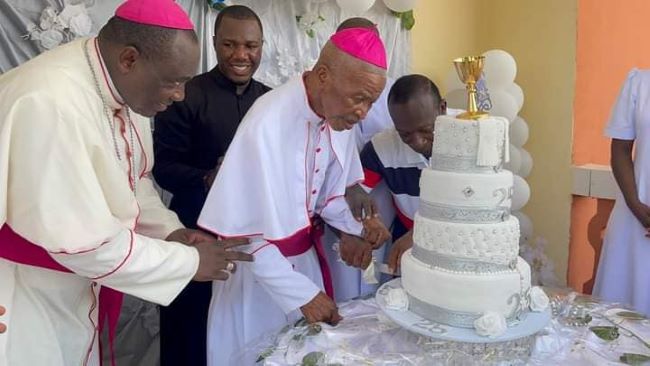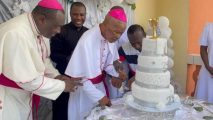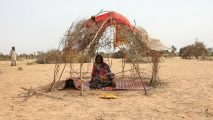Categories
Archives
- April 2024
- March 2024
- February 2024
- January 2024
- December 2023
- November 2023
- October 2023
- September 2023
- August 2023
- July 2023
- June 2023
- May 2023
- April 2023
- March 2023
- February 2023
- January 2023
- December 2022
- November 2022
- October 2022
- September 2022
- August 2022
- July 2022
- June 2022
- May 2022
- April 2022
- March 2022
- February 2022
- January 2022
- December 2021
- November 2021
- October 2021
- September 2021
- August 2021
- July 2021
- June 2021
- May 2021
- April 2021
- March 2021
- February 2021
- January 2021
- December 2020
- November 2020
- October 2020
- September 2020
- August 2020
- July 2020
- June 2020
- May 2020
- April 2020
- March 2020
- February 2020
- January 2020
- December 2019
- November 2019
- October 2019
- September 2019
- August 2019
- July 2019
- June 2019
- May 2019
- April 2019
- March 2019
- February 2019
- January 2019
- December 2018
- November 2018
- October 2018
- September 2018
- August 2018
- July 2018
- June 2018
- May 2018
- April 2018
- March 2018
- February 2018
- January 2018
- December 2017
- November 2017
- October 2017
- September 2017
- August 2017
- July 2017
- June 2017
- May 2017
- April 2017
- March 2017
- February 2017
- January 2017
- December 2016
- November 2016
- October 2016
- September 2016
- August 2016
- July 2016
- June 2016
Featured
 Bishop Francis T. Lysinge @ 25!
Bishop Francis T. Lysinge @ 25!  Understanding the Biya Francophone regime’s support for the Israeli genocide in Gaza
Understanding the Biya Francophone regime’s support for the Israeli genocide in Gaza  Poverty under Biya: Cameroonians embrace Chinese language for brighter futures
Poverty under Biya: Cameroonians embrace Chinese language for brighter futures  Cameroon is broken: Who can fix it?
Cameroon is broken: Who can fix it?  Ethiopia: U.S Senator Cardin Statement on the Killing of Bate Urgessa
Ethiopia: U.S Senator Cardin Statement on the Killing of Bate Urgessa
Most Commented Posts
 4 Anglophone detainees killed in Yaounde
4 Anglophone detainees killed in Yaounde
19 comments Chantal Biya says she will return to Cameroon if General Ivo Yenwo, Martin Belinga Eboutou and Ferdinand Ngoh Ngoh are sacked
Chantal Biya says she will return to Cameroon if General Ivo Yenwo, Martin Belinga Eboutou and Ferdinand Ngoh Ngoh are sacked
13 comments Anglophone Nationalism: Barrister Eyambe says “hidden plans are at work”
Anglophone Nationalism: Barrister Eyambe says “hidden plans are at work”
12 comments The Anglophone Problem – When Facts don’t Lie
The Anglophone Problem – When Facts don’t Lie
12 comments Largest wave of arrest by BIR in Bamenda
Largest wave of arrest by BIR in Bamenda
10 comments
Latest Tweets
Featured
-

Bishop Francis T. Lysinge @ 25!
-

10 Million Cameroonians lived on less than $1.80 per day
-

Football: Xavi to remain as Barcelona coach
-

Biya regime delays bond sale amid regional market strain
-

Historic agreement between Nigeria and Cameroon to tackle wildlife crime
-

Southern Cameroons refugees in Nigeria receive farm seedlings
-

Douala: Investment Forum wraps up with honors for investment champions
© Cameroon Concord News 2024
11, November 2021
There are reasons why Cameroonians hate President Biya and the CPDM 0
by soter • Editorial, Headline News
Millions of both French and Southern Cameroonians have known no other president than Mr. Paul Biya. More than half of Cameroon’s population were born or raised under Biya’s nearly 40-year authoritarian rule, and they have been hit hardest by the nation’s ever growing poverty and corruption and faltering education system.
Today, millions of Cameroonians are deeply worried about what could happen if Biya passes from the scene. That possibility was on every dinner table in Cameroon when the 88-year-old Biya underwent a major surgery in Geneva, Switzerland and was gone for a month and he has now spent several months in Yaoundé out of the public eye after returning home.
Interestingly, even with Biya in Yaoundé, Cameroonians still feel that they are a hair’s breadth away from complete and total chaos as many embittered by what they say is the Biya regime’s constant denial of democracy.
Now, many fear the unknown could be worse. The senseless war in Southern Cameroons that has claimed the lives of some 10,000 Cameroonians, with army soldiers accounting for close to 35% of the deaths, a divided nation, numerous Boko Haram incursions, high rates of poverty and criminality in all major towns and cities, but with Biya gone there will be looting and killing on the streets.
Fear of the unknown is a safeguard that the Biya regime and his ruling CPDM party have intentionally cultivated. Biya has long prevented any political figure in the country (even from within his own party) from gaining enough prominence to stand as an alternative and he has rejected calls to name a vice president who could be seen as a successor.
Correspondingly, his ruling CPDM crime syndicate regularly dishes out warnings that without Biya, the way is open to power for political adventurism.
Biya reportedly told one of his top aides recently that only Jesus Christ knows who will be his successor confirming claims at home and abroad that democracy would never determine who comes after him.
Since his return from Geneva and with age greatly telling on him, Biya has not said whether he will run for a new term in presidential elections due in 2025 — but top CPDM officials said recently that they want him to and they will be appealing for a national consensus for Biya to seek a new term in 2025.
But Cameroonians’ uncertainty over the future only underscores how deeply Biya and his ruling CPDM party are entrenched in their lives.
The former prime minister, who became president when his predecessor Ahmadou Ahidjo resigned in 1982, has significantly destroyed every developmental structure that he inherited and he has auctioned the country to corrupt French investors. The result in recent years has been high rates of poverty, criminality and homosexuality.
To be sure, wealth in Cameroon has gone only to a small group of Francophone political elite from Biya’s Beti Ewondo tribe, while the Cameroonian middle class has been crushed under high inflation and other woes.
Frankly speaking, the generation raised under Mr. Biya has had a tough time even entering the economy. Unemployment has hovered for more than three decades pushing many young people to migrate to Europe and North America. Democratic practices and freedoms have regressed and opposition parties are little more than figureheads set up by the Biya regime.
In Biya’s 39 years as head of state, elections are routinely rigged or fraught with irregularities and gendarmerie brutality is common. Security agencies hold wide powers and top military officials in the police, gendarmerie and the army also have considerable political influence. The result is a generation that is deeply frustrated, and while millions of Cameroonian young men and women will grumble about Biya, at the same time Biya is the only one they can turn to.
Over the last decade, the politically docile French speaking Cameroonians have been protesting in Douala and Yaoundé camping out to press demands for jobs and to air personal grievances. However, many of these protests don’t criticize Biya, but rather appeal to him for help. Some of the suffering Francophone protesters shout slogans accusing Biya’s close aides within the regime and the ruling CPDM party of stripping authority from Biya amid his illness and old age.
Indeed, Biya is the only one who can save the Cameroonian youth from their predicaments. But he’s own family is crumbling right in front of him! He has all along been isolated from the Cameroonian people and at 88, he can no longer make a difference.
Isolation from their leaders is something French speaking Cameroonians have never complained about but have always blamed Southern Cameroonians for raising the issue about Biya’s prolonged absence in the country. Today, the growing sense of an administration out of touch with people’s problems is eroding Biya’s image. If economic and social reforms don’t reach the people, then those policies have not succeeded. The Beti media gurus on Vision 4 are very much unaware of this assertion.
In Biya’s Cameroon, you can bang your head against the door for years seeking a government job, and still lose out to an ill-equipped rival who has better CPDM connections. We of the Concord Group understand that this is the widespread feeling among the young in Cameroon that a job depends on who you know, not what you know.
By Soter Tarh Agbaw-Ebai